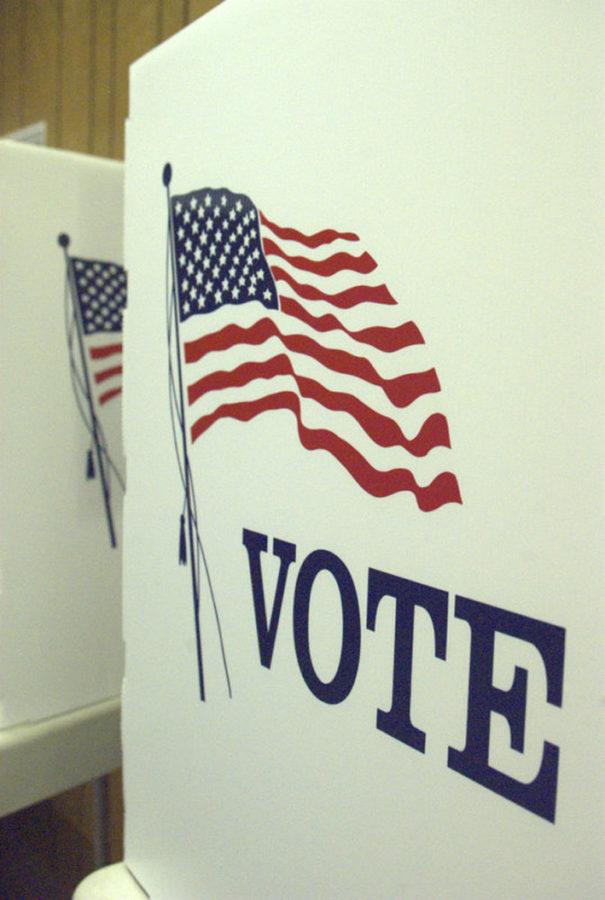Why should college students care about a local school board election?
Because there are 42 schools in the Pittsburgh Public Schools system, educating more than 24,500 students every year — many of whom will go on to impact the city as leaders, educators, politicians and members of the workforce.
The primary elections for mayor, city council and school board are coming up in May, and although about a third of all city Democrats voted in the 2015 primary, only one in five Democrats bothered to vote for school board candidates on the same ticket, according to A+ Schools. Primaries are often victims of low voter turnout at the national, state and local levels, but even lower numbers for school board races means only a small fraction of city residents are exercising their power over education, an issue all of us should be more concerned about.
In Pittsburgh, the school board is made up of nine elected officials, each representing one of the city’s nine districts. In addition to making decisions as a group, the board also breaks down into three main committees on education, business and finance and personnel and several subcommittees such as government relations, teacher effectiveness and district sustainability.
The board is the main policy-making body for Pittsburgh Public Schools, charged with overseeing the city’s schools, employees and teachers as well as determining how to distribute the schools system’s 2016 $594 million budget — which is more than the entire city of Pittsburgh’s operating budget.
In a city survey from 2016, residents in eastern Pittsburgh named strong public schools as the number one factor in determining quality of life — meaning the interest in and need for quality schools is paramount to Pittsburgh residents in actuality if not in voting.
The lack of awareness about the school board is a cyclical one. Because we don’t pay much attention to the issues of the board, we likewise don’t realize the power it holds to make changes in the city. In addition to the actual changes the board can bring to education and policy in Pittsburgh, we should also be considering the long-term changes that come from each school board. Even as college students who are minimally affected by the school board in the day-to-day, we should be concerned about the ways they’ll be influencing young people’s education and futures.
Just like the mayoral and city council races, school board elections are held every two years. Even-numbered district seats were up for reelection in 2015, meaning this year’s cycle is for the odd-numbered ones. Three out of the four seats in the 2015 primary were contested, and still only 20 percent of Democratic voters voiced their opinions. Similarly, four out of the five seats open for the May primary are being contested, including a fifth-district — which includes Oakland — race between Ghadah Makoshi and incumbent Terry Kennedy.
The board holds the power to hire the superintendent, as it showcased in 2016 by approving Anthony Hamlet for PPS superintendent after a controversial investigation found him not guilty of embellishing or plagiarizing parts of his resume. So while it likely won’t need to hire or approve another superintendent before the 2019 election, the board still works with the superintendent to make decisions and create policy changes.
The board can also act as the final taxing body on matters already approved by the city and county boards, as it did in 2015 when it approved a Local Economic Revitalization Tax Assistance Act tax break grant for the SkyVue apartment building in Oakland.
The large amount of power coupled with the low amount of voter attention the board gets has led advocacy groups to work harder at informing citizens of who is running and their platforms. A+ Schools is a part of the push to get Pittsburghers more involved and informed in the election, setting up a website with links to voter registration and brief outlines of candidate platforms for each district.
The fault of little attention to these smaller, local elections falls on many of us. From the voters themselves to news outlets covering the election, it’s important for citizens to be informed so they can make a decision on every race on the ballot.
An executive director for A+ Schools penned a letter to the Pittsburgh Tribune-Review asking the paper for more dedicated coverage on school board elections after the paper published an article detailing the intense three-person race for mayor. So while citywide outlets such as the Post-Gazette and The Incline have done coverage on the election that includes the school board, it’s important that local news outlets take an active role in equally covering all the races.
School board decisions have the power to influence the average city resident just like the mayor or the members of the city council, so we should be holding voters accountable for learning about the elections and making informed voting decisions come May.
If we don’t, we’re all worse off.


